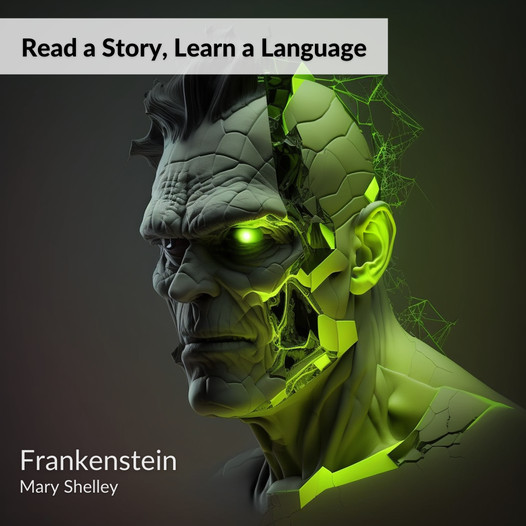
How It Strikes a Contemporary
I only knew one poet in my life:
And this, or something like it, was his way.
You saw go up and down Vallodolid,
A man of mark, to know next time you saw.
His very serviceable suit of black
Was courtly once and conscientious still,
And many might have worn it, though none did:
The cloak, somewhat shone and showed the threads,
Had purpose, and the ruff, significance.
He walked and tapped the pavement with his cane,
Scenting the world, looking it full in face,
An old dog, bald and blindish, as his heels.
They turned up, now, the alley by the church,
That leads nowhither; now, they breathed themselves
On the main promenade just at the wrong time:
You’d come upon his scrutinising hat,
Making a peaked shade blacker than itself
Against the single window spared some house
Intact yet with its mouldered Moorish work –
Or else surprise the ferrel of his stick,
Trying the mortar’s temper ‘tween the chinks
Or some new shop a-building, French and fine.
He stood and watched the cobbler at his trade,
The man who slices lemons into drink,
The coffee-roaster’s brazier, and the boys
That volunteer to help him turn its winch.
He glanced o’er books on stalls with half an eye,
And fly-leaf ballads on the vendor’s string,
And broad-edge bold-print posters by the wall.
He took such cognisance of men and things,
If any beat a horse, you felt he saw:
If any cursed a woman, he took note;
Yet stared at nobody – you stared at him,
And found, less to your pleasure than surprise,
He seemed to know you and expect as much.
So, next time that a neighbor’s tongue was loosed,
It marked the shameful and notorious fact,
We had among us, not so much a spy,
As a recording chief-inquisitor,
The town’s true master if the town but knew!
We merely kept a governor for form,
While this man walked about and took account
Of all thought, said and acted, then went home,
And wrote it fully to our Lord the King
Who has an itch to know things, he knows why,
And reads them in his bedroom of a night.
Oh, you might smile! There wanted not a touch,
A tang of. . . well, it was not wholly ease
As back into your mind the man’s look came
Stricken in years a little – such a brow
His eyes had to live under! – clear as flint
On either side the formidable nose
Curved, cut and coloured like an eagle’s claw.
Had he to do with A.’s surprising fate?
When altogether old B. disappeared
And young C got his mistress – wasn’t our friend,
His letter to the King, that did it all?
What paid the bloodless man for so much pains?
Our Lord the King has favourites manifold.
And shifts his ministry some once a month;
Our city gets new governors at whiles –
But never a word or sign, that I could hear,
Notified to this man about the streets
The King’s approval of those letters conned
The last thing duly at the dead of night.
Did the man love his office? Frowned our Lord,
Exhorting when none heard – ‘Beseech me not!
Too far above my people – beneath me!
I set the watch – how should the people know?
Forget them, keep me all the more in mind!’
Was some such understanding ‘twixt the two?
I found no truth in one report at least –
That if you tracked him to his home, down lanes
Beyond the Jewry, and as clean to pace,
You found he ate his supper in a room
Blazing with lights, four Titians on the wall,
And twenty naked girls to change his plate!
Poor man, he lived another kind of life
In that new stuccoed third house by the bridge,
Fresh-painted, rather smart otherwise!
The whole street might o’erlook him as he sat,
Leg crossing leg, one foot on the dog’s back,
Playing a decent cribbage with his maid
(Jacyinth, you’re sure her name was) o’er the cheese
And fruit, three red halves of starved winter-pears,
Or treat of radishes in April. Nine,
Ten, struck the church clock, straight to bed went he
My father, like the man of sense he was,
Would point him out to me a dozen times;
‘St-‘St’ he’d whisper, ‘the Corregidor!’
I had been used to think that personage
Was one with lacquered breeches, lustrous belt,
And feathers like a forest in his hat,
Who blew a trumpet and proclaimed the news,
Announced the bull-fights, gave each church in turn,
And memorised the miracle in vogue!
He had a great observance from us boys;
We were in error; that was not the man.
I’d like now, yet had haply been afraid,
To have just looked, when this man came to die,
And seen who lined the clean gay garret-sides
And stood about the neat low truckle-bed,
With the heavenly manner of relieving guard,
Here had been, mark, the general-in-chief,
Thro’ a whole campaign of the world’s life and death,
In his old coat and up to knees in mud,
Smoked like a herring, dining on a crust –
And, now the day was won, relieved at once!
No further show or need for that old coat,
You are sure, for one thing! Bless us, all the while
How sprucely we are dressed out, you and I!
A second, and the angels alter that.
Well, I could never write a verse – could you?
Let’s to the Prado and make the most of time.
ROBERT BROWNING
What do you call a guy who hangs out with a bunch of musicians?
The drummer. (The reader is invited to infer the rimshot.)


